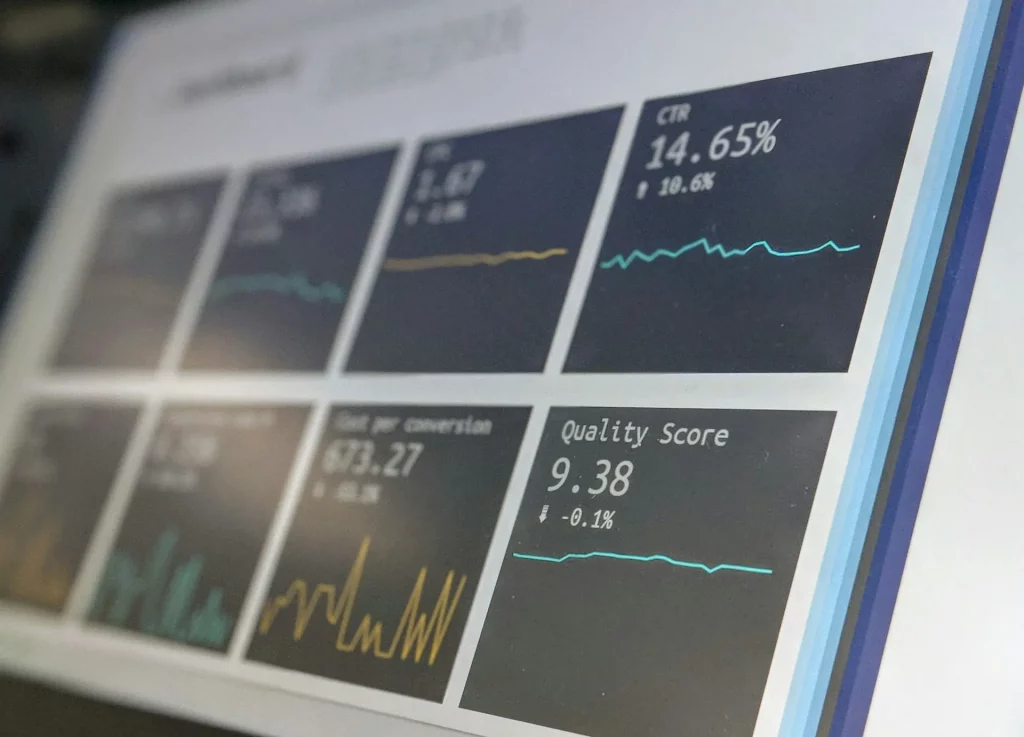Table of Contents
BI has become an essential part of many organizations’ operations. This information is really useful for understanding how a business is doing. It helps you see how much stuff they’re selling, how customers are acting, and what’s popular in the market.
Business intelligence tools and techniques have revolutionized the way companies make decisions, plan strategies, and improve their overall performance. In this blog, we will discuss the benefits of using BI in business operations.
But first, let’s look at what does business intelligence exactly mean?
What is Business Intelligence
Business intelligence (BI) refers to the use of technology, applications, and practices to collect, analyze, and present data to gain insights into business operations. It involves gathering data from various sources, such as databases, spreadsheets, and other software applications.
The data is then transformed into meaningful information and visualized through dashboards, reports, and charts so that decision-makers can better understand their business performance.
A retail company can use BI to analyze its sales data and identify trends in customer purchasing behavior. A healthcare organization can use BI to track patient satisfaction levels and improve service delivery. In any industry, BI helps companies make data-driven decisions for improved business results.
Advantages of Business Intelligence
The implementation of business intelligence systems brings a transformative effect to organizations, giving them a competitive edge in today’s data-driven world. By leveraging BI, companies can unearth hidden patterns, pinpoint inefficiencies, and predict future trends, all of which are critical for sustaining growth and innovation. Here are some key benefits that BI offers:
Enhanced decision-making
With Business Intelligence, companies can obtain and review data in real-time and use this information to make informed decisions. This reduces guesswork and helps companies avoid costly mistakes. BI is a tool that helps companies better understand their business so they can make the right choices.
Improved operational efficiency
Business intelligence offers a comprehensive view of an organization’s operations, empowering decision-makers to pinpoint areas for enhancement and implement suitable measures to boost efficiency. For example, a manufacturing company can use BI to track inventory levels, identify slow-moving products, and optimize production processes.
Better customer understanding
Business intelligence tools help businesses improve customer insight by collecting and analyzing data from various sources, such as social media, surveys, and website engagements. This data offers insights into customer preferences, dislikes, purchasing behavior, and satisfaction levels. Leveraging these insights enables companies to provide improved products and services aligned with customer preferences.
Cost savings
BI can help companies identify cost-saving opportunities by analyzing expense data and identifying areas where costs can be reduced without affecting business operations. For example, a transportation company can use Business intelligence to optimize delivery routes and reduce fuel costs.
Competitive advantage
In today’s competitive business landscape, companies need to stay ahead of the game to succeed. Business intelligence gives organizations a competitive edge by providing valuable insights into market trends, competitor strategies, and customer demands. It allows companies to make proactive decisions and differentiate themselves from competitors.
Increased revenue
By using BI to identify growth opportunities and optimize processes, companies can increase their revenue and drive business growth. For example, a retail company can use BI to analyze sales data and identify high-performing products or target new markets for expansion.
How Can Businesses implement BI?
Implementing a BI system may seem daunting for some companies, but the benefits far outweigh the initial challenges. Here are some steps to consider when implementing BI in your organization:
- Identify business goals and objectives: It is essential to have clear objectives and goals for using BI in your organization. It will help determine which data sources to gather and analyze and what insights to focus on.
- Choose the right BI tools: Various BI tools are available on the market, and it is crucial to choose one that aligns with your business needs and objectives.
- Gather and integrate data: Data is at the core of BI, so it is essential to gather relevant data from different sources and incorporate them into a central location for analysis.
- Create dashboards and reports: Dashboards and reports are user-friendly visualizations of data that can help decision-makers quickly understand insights and take action.
- Train employees: BI systems require users to have a basic understanding of data analysis. Training employees on how to use the tools effectively can maximize the benefits of BI.
- Continuously monitor and evaluate: BI is an ongoing process, and it is crucial to monitor and assess its effectiveness regularly. It will help identify areas for improvement and ensure that your BI strategy aligns with business goals.
What Should You Consider When Choosing a BI Tool?
When selecting a BI tool for your organization, here are some factors to consider:

- Data integration capabilities
- User-friendly interface and dashboard customization options
- Scalability for future growth
- Mobile compatibility
- Security features to protect sensitive data
- Cost and return on investment
- Customer support and training options
- Compatibility with existing software and databases
Let’s say you have everything, but your organization lacks the IT infrastructure to implement a BI system. In such cases, companies can consider using outsourced IT services for infrastructure management and BI implementation.
Role of IT Services in Implementing BI
Frequently Asked Questions
Everything you need to know about our IT services and solutions
Can small businesses benefit from using BI?
Yes, even small businesses can benefit from implementing a BI system. It allows them to make data-driven decisions and stay competitive in their industry.
Do all companies need to implement BI?
Although a BI system is not obligatory for all companies, it can significantly benefit organizations of any size and industry by offering valuable insights and enhancing decision-making processes.
How long does it take to implement a BI system?
The time needed to deploy a BI system may differ based on the organization’s scale, data origins, and business requirements’ intricacy. Typically, the process can span from a couple of weeks to multiple months.
What is an example of business intelligence?
For example, business intelligence in banking involves using BI systems for risk management and fraud detection. Banks analyze transactional data in real-time to spot unusual patterns, like sudden foreign transactions for customers in their home country.
BI aids in credit risk assessment by examining applicants’ financial histories to inform lending decisions. This multifaceted approach protects financial institutions, boosts operational efficiency, and enhances trust in the banking system.



